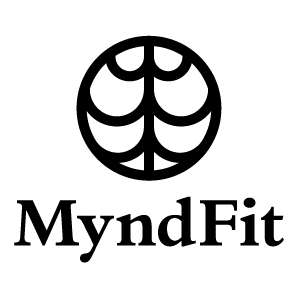Becoming An Active Participant In Your Own Life
Are You Living… or Just Reacting?
Most of us are doing our best to keep up with the pace of life — juggling responsibilities, managing relationships, and trying to stay afloat.
But if we’re honest, many of us aren’t truly participating in our lives. We’re reacting, not responding. Surviving, not thriving.
At MyndFit, we help people become active participants in their own human experience — to live more consciously, more deliberately, and more present in each moment.
When you start showing up with awareness rather than autopilot, life stops happening to you and begins unfolding through you.
1. Becoming an Active Participant
The first step in mental fitness is awareness — waking up to the fact that we’re often running on unconscious patterns and conditioned responses.
We react based on habit, emotion, or fear rather than clear observation.
Becoming an active participant means pausing long enough to notice what’s really happening before we act. It’s the difference between living in reaction and living with intention.
When you become more conscious of your thoughts, feelings, and behaviours, you begin to reclaim authorship over your experience. You start to live life on purpose — not just by default.
“Awareness is the first rep in mental fitness. You can’t change what you’re not aware of.”
2. Developing a Healthy Relationship with the Ego
A lot of modern psychology and spirituality talks about “letting go of the ego,” but at MyndFit, we see it differently.
The ego isn’t something to destroy — it’s something to understand and work with.
Your ego is the part of you that wants to protect, to prove, to be seen. When it’s unhealthy (over or under inflated), it seeks control or validation.
But when it’s balanced, it helps you show up with confidence and purpose.
Developing a healthy relationship with your ego means recognising when it’s running the show and gently bringing yourself back to humility and compassion.
It’s about using the ego as a servant, not a master. You can appreciate its role without letting it dominate your decisions or distort your perception of reality.
In simple terms, a healthy ego allows you to be both strong and soft — grounded in who you are, but open to growth and feedback.
3. Regulating Emotional Responses
One of the key goals in our programs is helping clients develop emotional balance — to have an emotional response that is in proportion to what you’re experiencing.
Or a more clinical description is training the brain to release the right amount of the right chemical in the right situation.
When emotions are unregulated, we might overreact or underreact — swinging between overwhelm and numbness.
Through mental conditioning and awareness training, we learn how to feel fully without being consumed.
This doesn’t mean never feeling upset, angry, or sad. It means allowing those emotions to pass through naturally instead of getting stuck in them.
When your emotional response matches reality, life feels steadier, clearer, and more manageable.
Reducing Unnecessary Suffering
Life involves pain — that’s the necessary suffering. Loss, disappointment, change — these are part of being human.
But much of our distress comes from unnecessary suffering — the kind we create through resistance, attachment, and overthinking.
At MyndFit, we help people recognise and release unnecessary suffering. It’s about learning to let go of what you can’t control, stop fighting reality, and find peace in acceptance.
When you develop this skill, you start to move through challenges with more grace.
You suffer less, or at least, you suffer better — without compounding your pain through stories, blame, or control.
The MyndFit Approach
Everything we teach is grounded in practical mental fitness — awareness training, emotional regulation, and the philosophies that underpin real wellbeing. We blend Eastern wisdom and Western psychology to help people understand their minds, develop self-responsibility, and strengthen their mental health just as they would their physical health.
You can think of it like training a muscle — consistent, intentional work builds strength, balance, and flexibility.
Over time, you develop resilience, peace, and presence that lasts well beyond the session room.
Becoming the Conscious Participant
When you learn to be an active participant in your own life, you stop feeling like a victim of circumstance.
You begin to understand that your peace and happiness are not dependent on what happens around you, but on how you relate to it.
You respond instead of react.
You observe instead of control.
You flow instead of fight.
And slowly, you return home to yourself, settled, composed, adaptive.
That’s what mental fitness is really about — not perfection, but participation.
